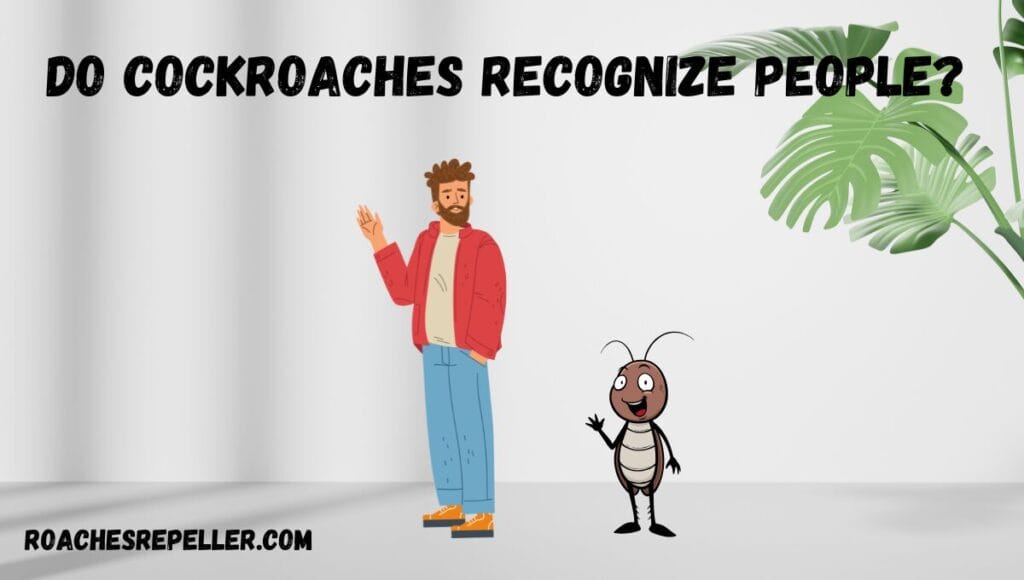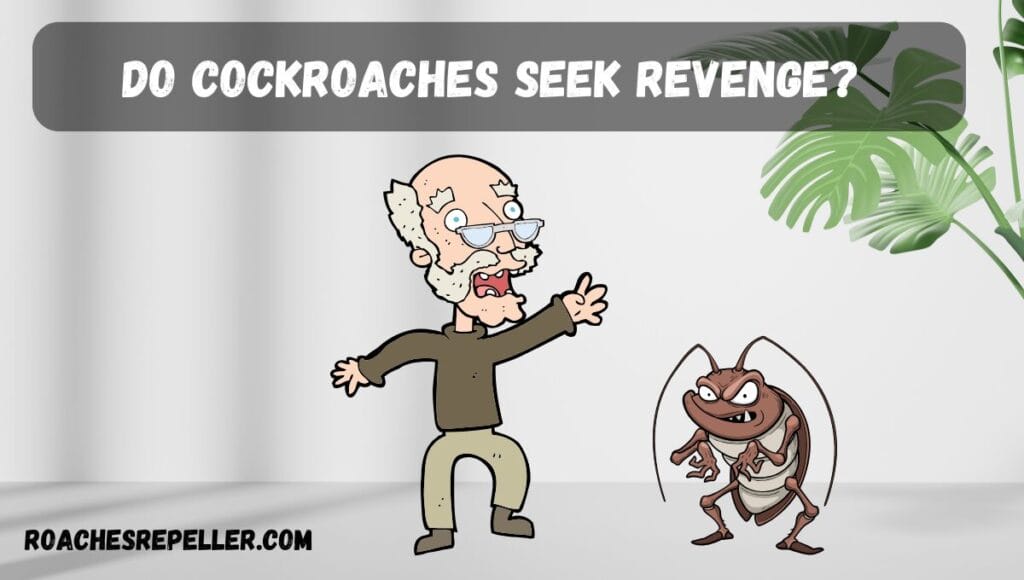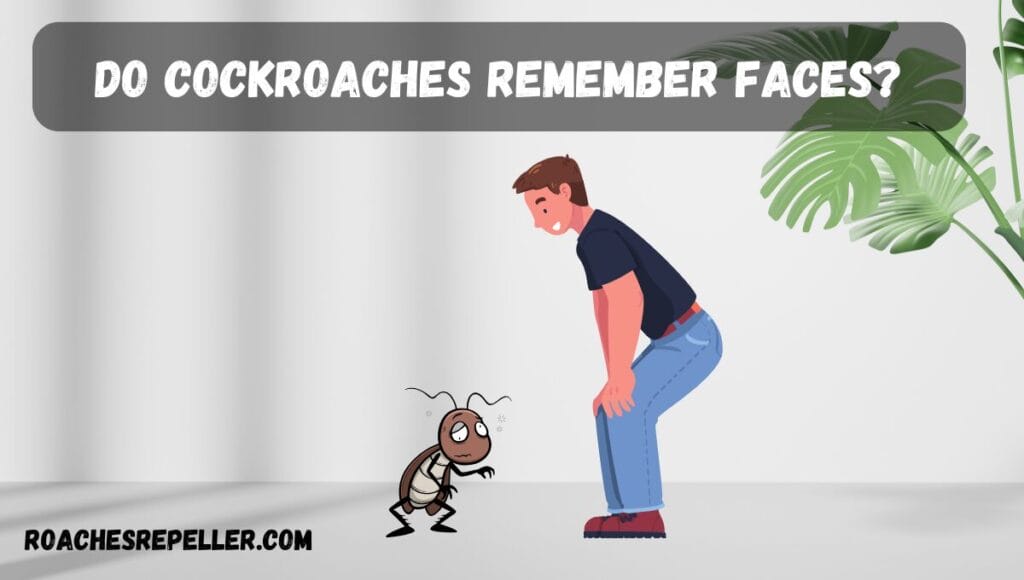Sometimes cockroaches directly jump on your face or your body. Sometimes this move from cockroaches causes people to think why cockroaches directly jump on your face. This is not an intentional jump from cockroaches. They do so because they are trying to navigate their environment for food crumbs, warmth, and moisture.
If you have irritated a cockroach or killed one of their companions, you may wonder whether the cockroach will seek revenge or if they can remember faces. The answer to this question is that cockroaches cannot remember faces like humans but can store visual memories as simple patterns.
Now, what if they store visual memories as simple patterns? Could they take revenge, or can they remember a face? These questions are explained in detail in this blog post.
Do Cockroaches Remember Faces?
What Does Face Recognition Require?
To recognize faces, the brain uses multiple areas, including
- The temporal cortex
- The fusiform face area (FFA)
- The amygdala
The cockroach brain does not have this type of complex brain. It has a simple and primitive brain that is located in its head in the form of ganglia. It controls basic behaviors like feeding, motions, and response to external stimuli.
What Do Research Studies Say?
In 2005, a research study was conducted to see if insects can recognize human faces like humans do. For this purpose, scientists trained bees to pick a target face and avoid similar ones. They succeeded over 80% of the time even with new distractors. This shows that they can recognize faces.
However, the problem arose when scientists flipped faces upside down. The accuracy of bees to recognize faces suddenly dropped. This study suggests that insects may use a type of visual processing similar to humans but this ability gets disrupted when the face’s layout changes. This study was published in the Journal of Experimental Biology.
According to a research study, cockroaches have different parts in their brain that control specific functions. This study was published in the Journal of Experimental Biology in August 2010.

Do cockroaches recognize people?
In the case of cockroaches, they do not recognize human faces. They detect features like edge direction, light intensity, air movement, and warmth, and store these cues as visual memories. They use these cues to recognize landmarks and find rewards.
But they do not see shapes and objects as humans do, although they have two types of eyes. A cockroach may run or fly away when you come near it because it detects the disturbance in air movement you cause, not because it recognizes humans.
Do cockroaches seek revenge?
If you chase a cockroach in your home with a slipper in your hand, it will hide somewhere. Then, it will come out at night in front of you. You might wonder whether it is here to seek revenge.
But this is not true; cockroaches do not seek revenge like humans do. Their behavior is driven by survival instincts, the search for food, and environmental conditions.
As we have talked about already, cockroaches have simpler brains. They do not have the mental capacity for emotions, and they also do not recognize people seeking revenge.
Taking revenge on someone requires a complex emotional response. It involves several qualities that cockroaches do not have. For example, it involves awareness, intent, and sense of justice.
Now you will ask, then why sometimes their actions feel so personal?

Why People Think Cockroaches Seek Revenge
If cockroaches do not have emotions and cannot make plans to seek revenge, why do some people think they are being targeted by the same cockroach?
As we have mentioned, cockroaches can detect features like edge direction, light intensity, and warmth, and they store these cues as visual memories. If a cockroach appears again and again in a specific place, it means it has become familiar with that place—not because it is seeking revenge against a human.
Conclusion
Cockroaches do not have advanced brains like humans; they have primitive brains. Therefore, they do not experience emotions like humans. Instead, they rely on several basic instincts, such as survival instincts, a sense of smell, and the ability to detect optimal environmental conditions.
Cockroaches do not jump on you intentionally. They do so for several other reasons, such as searching for food, warmth, moisture, or hiding places. They can also sense air currents caused by your movements. Sometimes, they perceive danger nearby. Therefore, jumping on you is simply a basic survival instinct.
FAQs
How long is a cockroach’s memory?
Studies show that cockroaches can store memory only in one training session. They can retain this memory for 7 to 8 days.
According to a research study, cockroaches can retain memory for up to one week after a single training session. This study was published in the Journal of Zoological Sciences in January 2001.
How do roaches navigate?
Cockroaches navigate using a combination of several signals, with their antennae being the most important tool. They use their antennae to detect obstacles and hurdles in their path.
They can also sense disturbances in air movement, allowing them to prepare for incoming threats. Their compound eyes help them see, although their vision is not as powerful as that of humans.
How do cockroaches communicate with each other?
Cockroaches communicate with each other in several ways, including chemical signals (pheromones) and sound communication. They also use antennae gestures for interaction.
When it comes to sound communication, cockroaches produce hissing or chirping sounds.
Chemical signals (pheromones) are categorized into several types:
- Sex Pheromones
- Trail Pheromones
- Aggregation Pheromones
Can roaches see you looking at them?
No, cockroaches can’t see you looking at them. They have compound eyes, but their eyesight isn’t strong enough to detect such fine details. They can, however, detect air disturbances caused by you. If you come closer, they will sense changes in the air movement and flee from the area.

